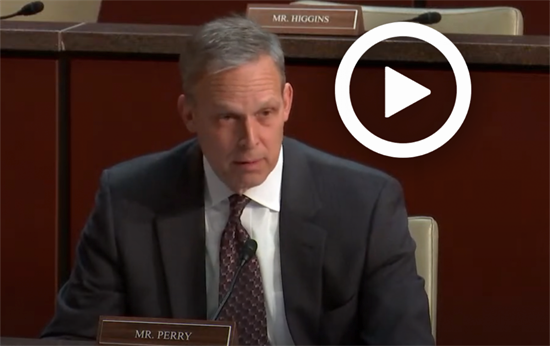In The News
Census Bureau director: Citizenship question in 2030 would ‘dampen participation’
Washington,
December 5, 2024
By Anna Giatritelli
House lawmakers tussled with one another and the top U.S. census official over the possible inclusion of a question on U.S. citizenship in the forthcoming decennial census in 2030 and drew criticism from the head of the Census Bureau over the need for such a question. U.S. Census Bureau Director Robert Santos testified before the House Committee on Oversight and Accountability Thursday morning and was blitzed by Democrats and Republicans with debate over the need to include all U.S. residents in the census versus asking them about their immigration status to determine who is a U.S. citizen, permanent resident, or illegal immigrant. “There is evidence that adding a citizenship question to the decennial census would dampen participation,” said Santos, when asked by House Judiciary Chairman Jim Jordan, an accountability committee member, how asking about one’s citizenship would affect results. In 2019, the Trump administration tried to add a citizenship question to the 2020 census but failed to do so. Rep. Eleanor Holmes Norton (D-DC) said that doing so would result in millions fewer people filling out the census. “Research has shown that adding a citizenship question could have led to 9 million fewer people completing the 2020 census, and census staff reported that just debate over adding such a question in 2019 made people fearful to engage with the census,” said Norton. Rep. Jamie Raskin (D-MD) said asking about citizenship would turn the census into a “partisan-motivated” act filled with “conspiracy theory and fearmongering.” The issue is already shaping up to be a hot button six years ahead of the 2030 census. Republicans argued Thursday that because all people living in the United States are called to be counted in the census every decade, the survey ought to specifically ask respondents about their immigration status. The census results determine the number and location of congressional seats and federal funding. Republicans argued that the 2020 census results overcounted in several Democrat-governed states and undercounted in some Republican-run ones, though Santos said he could not explain why that may be the case. The illegal immigrant population could lead to more House seats in blue states, according to House GOP lawmakers. Those members said being able to deduct that population from the total population would lead to a more accurate disbursement of federal congressional offices and funding. Jordan pushed that the Census Bureau asks in its annual community survey if respondents have a mental illness and how asking that was just as personal as asking someone about their immigration status. Rep. Scott Perry (R-PA) said counting illegal immigrants without including a citizenship question was akin to allowing a stranger to reside in one’s house and take their point of view into consideration on household decisions. “Let’s just take another scenario. … This is the first time we’ve met. You don’t know me, right? We haven’t met before, so I just move in. I squat in your home,” said Perry. “And I start saying, ‘Look, I think you ought to park your car outside the garage because I’m living in here now.’ Is that going to be acceptable to you?” “It’s actually irrelevant to why I’m here,” said Santos. “That’s exactly what we’re doing in the United States,” Perry responded. |

